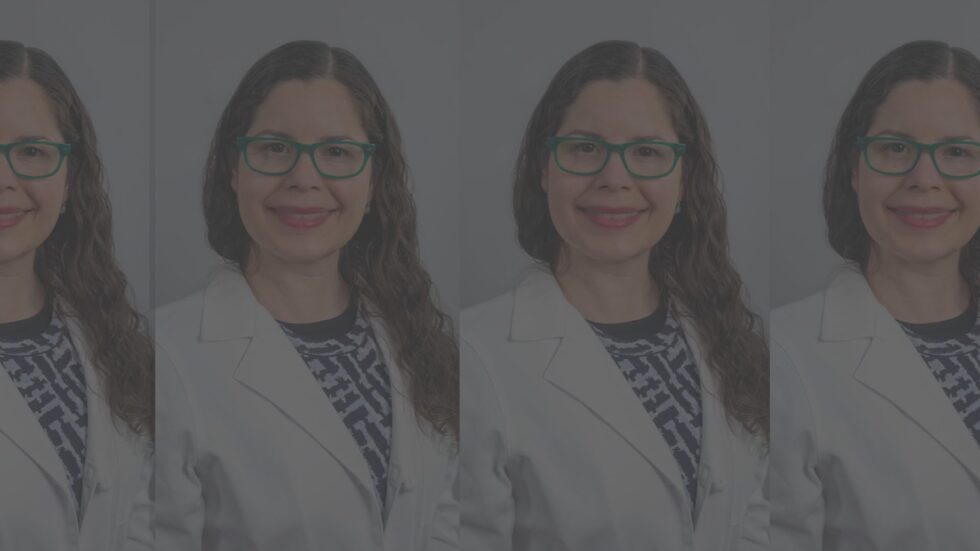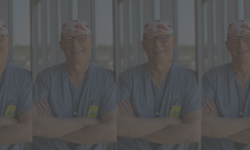
“It’s important that every time we are in a situation that we might view as a challenge, we take it as a potential learning opportunity,” Chief of Pediatric Rehabilitation Medicine at UT Health Austin Pediatric Neurosciences Glendaliz Bosques said. “Learning about ourselves, or learning what we want to have as a vision moving forward.”
Throughout her education and career, Bosques encountered several challenges, including comparing herself to her mentors and grappling with standardized testing. Like many medical students, she often placed her mentors on a pedestal, viewing them as flawless figures. A key part of her growth involved reminding herself that even those in prestigious roles, such as professors and attending physicians, had faced their own mistakes and setbacks along their journey.
Additionally, Bosques did not pass her USMLE Step 1 examination on her first attempt, which was particularly discouraging given that she understood the material but struggled with the format of standardized tests. Despite these setbacks, instead of seeing them as obstacles or barriers, she embraced them as valuable learning opportunities, helping her recognize her strengths, and areas of improvement, key for later experiences.
“It’s important for us to understand what our strengths are, and there might be other skills that we don’t see as a strength that we need to practice more because they’re not as easy for us,” Bosques added.
Early Life and Education
Bosques earned a Bachelor’s Degree and a Medical Degree from The University of Puerto Rico. She completed her residency in Physical Medicine and Rehabilitation (PM&R) at The PM&R Alliance with Baylor College of Medicine and the University of Texas Health Science Center at Houston. Her fellowship was conducted at Cincinnati Children’s Medical Center, affiliated with The University of Cincinnati.
As a young girl, Bosques often found herself in her mother’s clinical lab, intrigued by her mother’s work as a medical technologist. She cited this early exposure to research as the initial impetus behind her desire to obtain a dual M.D./Ph.D. degree, adding that she had always been interested in working with children with special needs as a pediatric geneticist. During her undergraduate education at the University of Puerto Rico, Bosques worked in a genetic lab, where she worked closely with laboratory techniques such as DNA splicing.
“I always thought it was really interesting how multiple individuals would have very similar needs because of having a genetic condition or a syndrome,” Bosques added.
During a medical school rotation, Bosques observed patient-physician interactions in a genetic clinic. However, she found that working in genetics would ultimately limit her ability to create long-lasting relationships with patients.
Because she valued longitudinal care, Bosques discovered an interest in rehabilitation, given that she valued a team-based approach to her career and hoped to avoid a “cookie-cutter approach” prevalent in other medical fields. Thus, after exploring related fields, she began her career in PM&R.
“The way I discovered [pediatric rehabilitation medicine] was because of my interest in having these relationships with patients that have childhood-onset disabilities,” Bosques added.
Bosques noted that rehab patients often had a variety of passions and interests outside of the hospital, and many patients with the same disabilities could be exposed to very different environments, all of which needed to be considered when developing a treatment plan.
“I think kids are again, so resilient, that even if they have an illness that paralyzes them, they still pursue their passions and their interests,” Bosques added.
Bosques especially enjoyed the medical school rehabilitation rotation, admiring the team-based approach, where a team of specialists and healthcare professionals worked together to “take the needs of the patient, and in pediatric rehab, the family’s goals”.
Academic and Community Impact
“Kids are amazing, kids are resilient, kids are fun,” Dr. Bosques said. “Kids are going to try to be kids, no matter what life throws at them. Sometimes adults are the ones that limit them, so I want to be one of those adults that doesn’t limit them and that actually allows them to navigate, to improve access, to improve participation, to be able to pursue their interests, despite whatever their body looks or works or moves or doesn’t.”
Bosques said she is continually amazed by the ingenuity of many of her patients. She recalls one patient from Mexico who, faced with limited options for prosthetic intervention, took a creative approach. He purchased multiple foam blocks from an arts and crafts store and cut them into different shapes and sizes to modify his prosthesis socket to optimize its fit and comfort.
“Those things also inspire me to be more creative, and to be more open, and to sit with my patients and their families [to determine] what are things we can work together towards,” Bosques added.
During the initial stages of her career, Bosques worked with acute medical conditions leading to weakness and paralysis in adults, rather than children. While she noted that new mobility and cognitive impairments at any age are an extremely difficult experiences, she observed that many adults tended to adopt a more pessimistic mindset when diagnosed, which, in turn, limited their thoughts on what could be accomplished after such a significant change. In contrast, Bosques noticed that children were significantly more flexible in their treatment, working hard to pursue their dreams and passions despite their impairments.
Bosques recalled another one of her past patients, who was highly involved in outdoor traveling and sports until he was paralyzed in a freak accident. Even after such a devastating injury, the patient adapted to his new condition by continuing to be active, such as using a handcycle, a wheeled device that has gears that allow people with limb loss or lower limb paralysis to be able to efficiently propel themselves. The patient was able to continue their love for the outdoors and sports, and even complete marathons.
“That made me think of my lifestyle and how blessed I was that I could do these things, and lead a more active lifestyle,” Bosques added.
As an associate professor at the Dell Medical School at the University of Texas in Austin, Dr. Bosques is passionate about fostering greater physician empathy for the social aspects of patients’ lives within a medical relationship through her teaching.
“I wanted to provide opportunities for the medical students to learn in the traditional way, but also a nontraditional way,” Bosques said. “And I wanted it to be pertinent, bringing [in] some of the things that I had to navigate with my own patients.”
More specifically Bosques noted that she hopes to bring awareness to the difficulties experienced by patients living with disabilities, including emphasizing the importance of access: for example, ensuring future physicians install elevators to access clinics that are not on the ground floor. Furthermore, she wants to teach her students that they should not be scared of people with disabilities.
“I even made a handout, and I also made a didactic curriculum in which they would watch a movie, for example, and they would have these questions after watching a movie that had a character with a disability, to try to make them at least think about it,” Bosques said.
Bosques’ desire to uphold increased exposure to disability education for her students, especially since rehabilitation medicine is not a required rotation in most medical schools, has also pushed her to join the medical school education committee. In this role, she worked to integrate disability-related topics into the academic curriculum and expand volunteer opportunities in rehabilitation and similar fields.
“I’ve had to collaborate closely with pediatrics, or with the neurology rotation, or with the psychiatry rotation, or with the radiology rotation, on trying to get disability-focused perspectives,” Bosques said. “For example, making sure that a problem-based learning case has a little bit more information than the patient is ‘X age, X gender, and they come with pain.’ Well, what do they do for an occupation? Where do they live? Because in rehab, we take care of patients beyond the walls of the office.”
Through her efforts, Bosques aims to raise disability consciousness among future healthcare providers, which has been especially fruitful as she has encountered colleagues with similar actionable goals. Given that she has observed many physicians who are unsure of how to effectively treat patients with disabilities, Bosques stated that this issue can be changed if education on disability management continues to become more normalized and integrated within undergraduate and post-graduate medical education.
“I’ve been blessed enough to have found other people that are interested in this and looking at, like academic research out there, about how we learn why exposures are appropriate or optimal, [and] what things may be out there that amplify an ableist point of view,” Bosques added. “And we put a call to action for medical schools, to think about the importance of integrating these topics, especially not just for management and access, but also from a diversity, inclusion and equity standpoint.”




